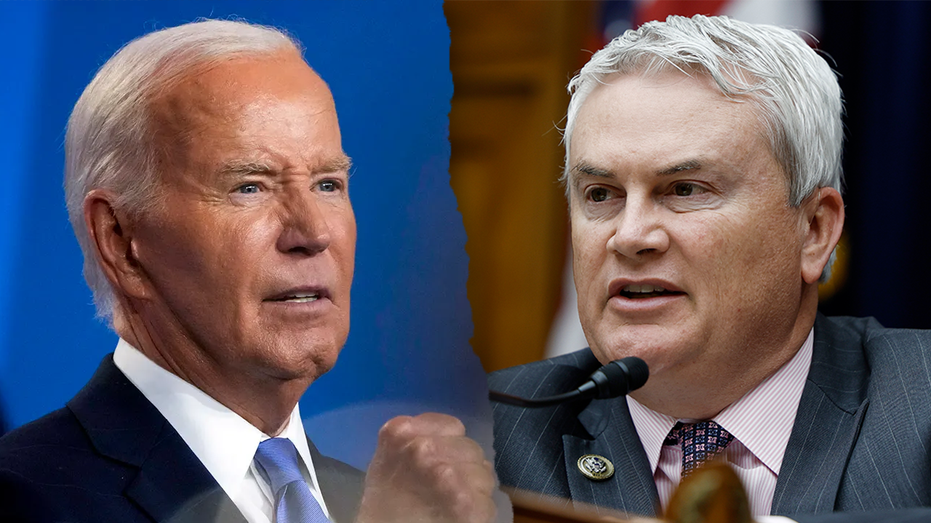House Committee Chair Comer Expands Biden 'Cover-Up' Investigation, Seeks Interviews with Anita Dunn and Ron Klain
House Oversight Chair James Comer contacts five of Biden's inner circle to broaden investigation scope.

The House Oversight Committee, under the leadership of Chairman James Comer, R-Ky., is significantly expanding its inquiry into alleged efforts to conceal former President Joe Biden’s reported mental decline. The latest effort involves letters dispatched to five prominent former White House officials, bringing the number of individuals contacted as part of this investigation to ten.
The most recent letters target former White House Chief of Staff Ron Klain, senior communications advisor Anita Dunn, top advisors Michael Donilon and Steve Ricchetti, and former Deputy Chief of Staff for Policy Bruce Reed. In his correspondence, Comer alleges that these former aides may have played a role in “usurping authority” from President Biden and possibly participated in or had knowledge of actions to hide any deterioration in his cognitive or physical abilities.
“The Committee on Oversight and Government Reform is investigating the role of former senior White House officials in possibly usurping authority from former President Joe Biden and the ramifications of a White House staff intent on hiding his rapidly worsening mental and physical faculties,” Comer stated in his message to the five aides. He emphasized that the investigation seeks to clarify who was responsible for key executive branch decisions and whether they were made with or without Biden’s direct input or consent.
Each letter contained specific references to the recipient's duties and interactions with President Biden. In his message to Ron Klain, Comer noted the former Chief of Staff’s long-standing relationship with Biden, both within the White House and the 2024 campaign. The letter cited reports indicating that debate preparation for the June 27, 2024, presidential debate was reportedly cut short due to Biden’s fatigue and challenges with subject matter comprehension, raising further questions about the president’s capacity at the time.
Similarly, Comer’s letter to Anita Dunn highlighted her close advisory role and requested insights about Biden’s mental acuity and general health. “If White House staff carried out a strategy lasting months or even years to hide the chief executive’s condition—or to perform his duties—Congress may need to consider a legislative response,” Comer warned, underscoring the seriousness of the allegations and the potential implications for executive accountability.
The committee has requested each of the former aides to participate in closed-door transcribed interviews, which Comer believes will be more productive than public hearings. He argued that the private format will allow for focused, uninterrupted questioning, improving the chances of obtaining detailed information. “You’ve got one hour, you’re not interrupted, you don’t have to go five minutes back and forth,” Comer explained, stressing the strategic value of this approach.
Earlier in the probe, the committee reached out to former Biden physician Kevin O’Connor and additional ex-White House aides, signaling an aggressive and comprehensive effort to uncover information. The committee expects voluntary cooperation from witnesses but has left open the possibility of issuing subpoenas if necessary.
As the investigation intensifies, the spotlight remains firmly on whether senior staffers shielded or substituted for Biden in executing presidential responsibilities. With transcribed interview dates expected to be released soon, the coming weeks could bring further developments and heightened scrutiny of the Biden administration’s inner workings.




